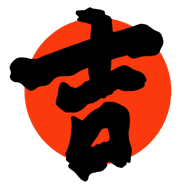You’ve booked your trip, you’ve got your bags packed… now what?
Well, we’ve got you covered. This article has some basic information about what you
need to bring with you to Japan, what Kichi Japan requires (if you’ve booked your
trip with us), and we even have you covered on what you don’t need to bring.
Let’s start with the basics.
Japan is one of the safest countries in the world. Crime is very low, and I have
never had anything stolen from me in Japan. Not only that, I’ve dropped personal
belongings multiple times, and every time without fail, I have had it returned to
me, or turned in to the nearest police station. Having said that, you should still
keep a close eye on your belongings. Having a pouch, or a secure bag that you can
place your most important items in is not only a good way to keep them safe, but a
good way to stay mobile, since you can just grab your small bag when you head out.
Japan’s drinking water is safe. This isn’t necessarily related to items that you
need to bring, but it is somewhat related to your spending budget. A lot of people
are usually afraid to drink the water in foreign countries (understandably so), but
Japan’s water is safe to drink, which is nice if you want to save money.
IC cards are a necessity for moving from place to place quickly in Japan. You man
not be used to these kind of cards, depending on where you are coming from (I was
amazed when I first started using them, as we don’t have a system quite like it yet
in the US). These can be used almost anywhere in the cities of Japan. Convenience
stores, train stations, restaurants, and a multitude of other shops. If you are
traveling with us, you’ll get one from your tour guide at orientation loaded with
enough money for transportation for the entire trip.
Travel insurance is always good to have when going abroad. On tours that I’ve lead,
I’ve seen people have allergic reactions to mosquito bites and it has been really
nice to be able to just take a guest straight to a clinic to get checked out, and
relax that it is something that they won’t have to stress out about later. That is
why Kichi Japan requires all of our guests to have traveler’s insurance before
attending one of our tours. Traveler’s insurance is very easy to get, and you may
already have it and don’t know it. If you don’t have it, don’t fret. It’s actually
not that expensive, and you can choose the dates that you need the coverage and
don’t need to spend money on any dates that you don’t need the coverage. If you’re
not sure where to start, we suggest taking a look at www.worldnomads.com (no, we
don’t get paid to suggest them).
This next suggestion may sound a bit strange, but buying or bringing a small hand
towel that will fit in your pocket is something that you won’t regret. Restrooms in
Japan aren’t usually equipped with paper towels. So you’ll see a lot of Japanese
people with their own hand towels in their pockets or bags that they use to dry
their hands off with. This comes in… handy, and is a good way to avoid
frustration.
Dictionaries are a great way to learn a few phrases before you come to Japan. I suppose everyone is using some kind of automated translator these days, but if you have signed up with Kichi Japan, all of our guides are fluent in both English and Japanese, and they will teach you the most important phrases that you need to know during orientation. I’ve personally witnessed people get by using “sumimasen” the whole time they were here. Seriously, it’s probably the most useful word in the whole language. It can mean “thank you”, “sorry”, “excuse me”, or even “can you take my order”. Talk about useful! It’s like a pocket knife for the Japanese language. When in doubt, “sumimasen”.
We’ll update this post with more ideas as they come to mind, but for all of those joining us on an upcoming trip, please be aware that traveler’s insurance is a
requirement for our guests.
Do you have any questions about Japan? Feel free to comment below.
